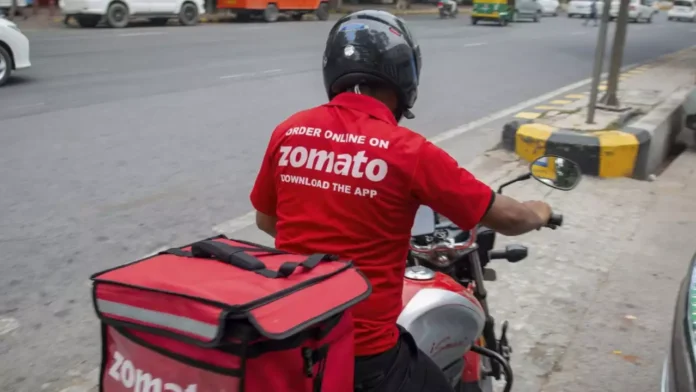Zomato, a major player in the food tech industry, aims to transition all its deliveries to electric vehicles (EVs) by 2033. This ambitious move is part of the company’s commitment to achieving net zero emissions throughout the entire food ordering and delivery value chain, aligning with its sustainability objectives.
The company announced its sustainability goals for the year 2030 on Wednesday during a conference on sustainability and inclusivity, organized by IndiaTech.org in collaboration with Zomato.
The Deepinder Goyal-led company’s sustainability goals are grounded in eight broad themes.
Zomato said it aims to support the growth of 3 Lakh micro, small, and medium-sized restaurant businesses and food entrepreneurs by 2030. Furthermore, the company aims to enhance the earning and saving capacity of one million gig workers through initiatives such as upskilling, partnerships, and benefit programs.
Other objectives involve achieving 100% plastic-neutral food delivery orders through voluntary recycling efforts and mobilizing resources to provide 300 million nutritious meals for underprivileged communities.
Commenting on these goals, Zomato’s chief sustainability officer Anjalli Ravi Kumar said, “Our visionary roadmap for 2030 signifies a significant stride towards a more sustainable and inclusive future. With a dedicated focus on eight material themes, this roadmap goes beyond the confines of food ordering and delivery, actively contributing to a world where every action leaves a positive imprint.”
With both central and state governments advocating the adoption of electric vehicles (EVs) to reduce carbon emissions, the sales of EVs have been increasing in the country over the past few years. Additionally, as environmental, social, and governance (ESG) norms gain prominence in global business practices, Indian startups are increasingly prioritizing initiatives such as reducing plastic usage and promoting EV adoption, among other sustainable practices.
Zomato has consistently advocated for the use of electric vehicles (EVs) in its delivery services and has forged numerous partnerships in recent years to electrify its delivery fleet. Last year, the company collaborated with Zypp Electric with the goal of deploying 100,000 electric scooters for deliveries by the year 2024.
Continue Exploring: Zomato partners with Zypp Electric to roll out 1 lakh e-scooters for efficient last-mile deliveries by 2024
It also entered into agreements with TVS Motors and SUN Mobility to roll out electric vehicle (EV) scooters for the gig workers on its platform.
Last year, Swiggy, Zomato’s rival, formed a partnership with the Taiwanese battery-swapping giant Gogoro to amplify the electrification of its delivery fleet. Concurrently, other tech companies like Flipkart and Amazon are also engaged in initiatives to electrify their last-mile delivery fleets.
Zomato’s shares concluded yesterday’s trading session 4.68% lower at INR 127.30 on the BSE.




